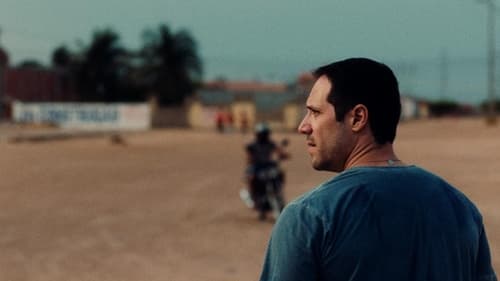
Editor
Daniel, de 40 años, ha sido suspendido del trabajo policial activo y está bajo investigación interna por violencia. Cuando Sara, su historia de amor en Internet, deja de responder a sus mensajes de texto, decide conducir hacia el norte en busca de ella, comenzando lo que aparentemente es una tontería. Muestra la foto de Sara, pero nadie parece reconocer a la mujer. Hasta que finalmente aparece un chico que dice que puede ponerlos a los dos en contacto bajo condiciones muy específicas.
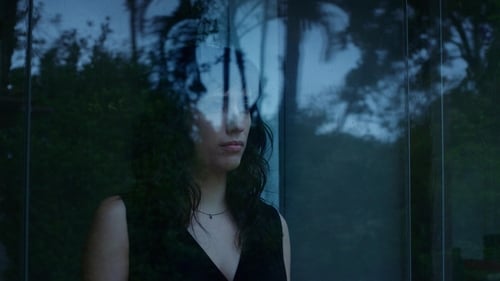
Editor
The couple Laura and Israël have a five-year-old son, Lucas. They live together but seem to have lost interest in one another's thoughts and cares. Their relationship seems headed for the rocks, and the only one who seems to still be looking for something from life is Lucas.

Editor
Film adaptation of "The letter from the hunchback to the locksmith" by Fernando Pessoa's heteronym Maria José.

Editor
Anxo returns to his home village in the Galician countryside. There, he is greeted with concern by the victorious and the defeated, who see in him the danger of diving back into their silenced memories.
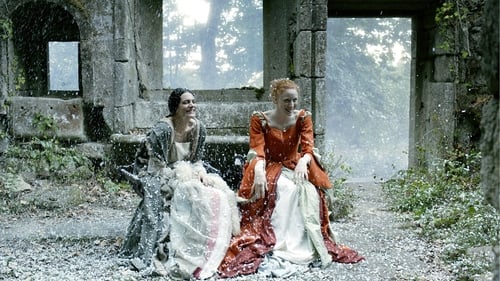
Cabreira
En algún momento del Medioevo tardío, el noble Herren von Ketten (Marcello Urgeghe), en pleno conflicto con el Episcopado de Trento, busca matrimonio en un país lejano, Portugal. Su esposa será una mujer portuguesa (Clara Riedenstein) que se instalará en el castillo de los von Ketten al norte de Italia. Recluida allí, con su esposo en la guerra, quedará embarazada de su primer hijo. Su vida transcurrirá entre criados, lecturas, juegos con un cachorro de lobo y el aprendizaje de algunos oficios manuales. Será un universo pautado por el ritmo masculino y en el que las mujeres deben parir, criar y esperar.

Editor
En algún momento del Medioevo tardío, el noble Herren von Ketten (Marcello Urgeghe), en pleno conflicto con el Episcopado de Trento, busca matrimonio en un país lejano, Portugal. Su esposa será una mujer portuguesa (Clara Riedenstein) que se instalará en el castillo de los von Ketten al norte de Italia. Recluida allí, con su esposo en la guerra, quedará embarazada de su primer hijo. Su vida transcurrirá entre criados, lecturas, juegos con un cachorro de lobo y el aprendizaje de algunos oficios manuales. Será un universo pautado por el ritmo masculino y en el que las mujeres deben parir, criar y esperar.

Editor
Abandoning a life of petty crime, David strives to fulfill his life-long ambition to become a professional singer of Fado, Portugal's popular folk-song. Together with his best friend Adriano, he starts performing on Lisbon's Fado Vadio circuit to perfect his craft, but whilst Adriano's strong voice swiftly brings him paid gigs, David struggles. Vadio is a human portrait of redemption, perhaps unattainable through music but possible with poetry. Unfortunately, David doesn't want to be a poet. It is a love story for a bygone Lisbon and Fado, where people still find catharsis singing songs about their sorrows.

Editor
Correspondências cuenta la historia de dos poetas protugueses de la segunda década del pasado siglo, Sophia de Mello Breyner Andresen y Jorge Sena, que se intercambian cartas, ya que el segundo de ellos se encuentra en el exilio.

Editor
"In the beginning of this project, I wanted to do a documentary film based on this book by Luiz Ruffato. However, I ended up doing a feature film with many links to documentary. I wanted to know what made Brazilians want to emigrate to Portugal. I chose working with amateur actors and non-actors in both cities, so their own life stories and experiences could be in the film. I did the other way round from the writer. He found these people and made them characters of his book. I looked for people who had similar stories to those described in the book, and made them characters of my film. When I read the book, I was seduced by its "false documentary" characteristic. The book was all written as if it was the transcription of an oral interview the writer had done in Lisbon. I decided to keep this narrative in the film, by a narration with the main character talking to the camera. It's a film about emigration. About dreams and disappointments," says Barahona

Luís Mário Lopes wrote the solo A Boa Alma for Mónica Calle in 2015, based on the works of Bertolt Brecht marking the departure of Casa Conveniente from Cais do Sodré and their arrival in the new venue in zona J, Chelas. The original score is by JP Simões.

Editor
Life is as unchanging as ever in the village: the sun sets between memories. The arrival of a young outsider changes everything. The old are offered a new gift and they accept it. The dreams awaken an old song which pulses through the village. 'With Fate driving the cart of everything along the road of nothing.'

Editor
Adi and Stefan go on an adventure through Latin America with only their guitars and an old school bus. Exposed to hardship and injustice they discover that music transcends all.

Editor
Sofia lives a strangely isolated life in the old apartment where she grew up in Lisbon. Mariama arrives from Guinea-Bissau, having been hired by Sofia’s mother to help take care of the house and her son. The appearance of Bobô, Mariama’s younger sister, awakens in Sofia the desire to take a stand. The forced cohabitation between Sofia and Mariama forces them to confront their own private ghosts.
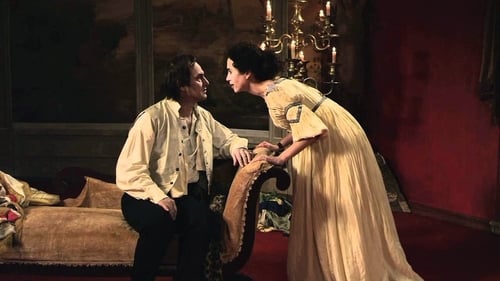
Editor
Adaptación libre y cinematográfica de uno de los cuentos más famosos del francés Barbey d´Aureville (1808-1889), incluido en el libro Les Diaboliques. Roberto es uno de esos hombres para los que la simulación es todo un arte. Para unos, se trata de un caballero refinado; para otros un libertino. En cualquier caso, Roberto es un hombre sumido en el más profundo de los aburrimientos, ya que ha agotado y satisfecho todos los placeres de la vida. Hasta que conoce a una cortesana que le introduce en una historia de amor verdadero, pero también de pasados imperfectos.

Editor
Com Que Voz is a documentary that recounts the life of Alain Oulman, an important cultural figure during the nineteen-sixties and seventies, who left an indelible mark on Portuguese and French society. The film, shot in Lisbon, Paris and Tel Aviv, features celebrated authors, politicians and musicians, such as: Patricia Highsmith, Amos Oz, Amalia Rodrigues and Mario Soares.

Editor
One of the most important figures in contemporary cinema, Pedro Costa's celebrated music documentary is a mesmerizing portrait of French actress-turned-singer Jeanne Balibar, a transfixing, cigarette-smoking chanteuse with an intense devotion to her craft. Photographed in shimmering black-and-white and featuring a soundtrack of jazz-inflected pop songs, the film is a luminous exploration of the creative process.

Editor
This documentary follows a 70 years old, Angolan nurse on a nearly impossible humanitarian mission into her home country. In a southern region that was specially affected by the long lasting, recent civil war, the local hospital has to be restructured. At this place where accidental death, poverty and lack of hygiene continue to be a part of people's daily life, the subversive presence of mystical forces seem to reinvent the meaning of life.

Editor
Una historia sobre el arte y los hombres cultos, y sobre como su arte a arte y su cultura se revelan inútiles ante las duras realidades de la vida del siglo XX.

Editor
Joáo Bénard da Costa, director of the Portuguese National Film Archives [deceased in 2009], interviews the dean of contemporaneous film directors [96-years-old then]. Two humanists of different philosophical backgrounds, both with their long, entire lives dedicated to culture in general (music, painting, literature) and to film in particular, discuss freely, sometimes haltingly, the director's power as a creator or a magician, the philosophy beyond particular scenes in classic movies, film technique, the importance of color, sound and music to films, art versus entertainment, and much more. Their talk takes place in a museum room, seating in front of "The Annunciation" (a 1510 oil painting by João Vaz, a Portuguese artist), which eventually leads to a discussion of 'Leonardo da Vinci', and the relationship between a trend-setter master and his disciples.

Editor
Previously focused on Asian directors, “Jeonju Digital Project 2007” takes a look at Europe. The Portuguese filmmaker Pedro Costa, the German filmmaker Harun Farocki, and the French filmmaker Eugène Green participated in this project.

Editor
The legend of Floripes, is about an enchanted moor of Olhão, in the Algarve. Enchanted moors are one of the cornerstones of Portuguese mythology. They are often seductive and being temptresses, they can offer a powerful reward, but also a terrible curse. Left in Portugal during the Reconquista while her family went back to North Africa, beautiful Floripes was condemned to roam her ancient kingdom in the Algarve until a man could undo her curse. Then she would marry him and give him her fabulous treasure. But if the man fails, she must eat his heart.

Editor
Ivo and Tomás, two volunteered vagabonds who feed their souls of ways and great winds. From time to time they make a stop, renting their arms, the necessary time to be able to, provisions made, get on the road again. Once, with the sun at its peak and a burning heat, the desert that they are crossing seems to be endless. They run out of water… in the end of the day, without any strength left, they let themselves fall near to a dried bush. Ivo stares at the moon rising, as is saying farewell and whispering verses of a poem of a lawyer they’ve met before. It is then that he sees a far light. They set their way to that house…

Editor
A fairy tale from the computer age: a 15 year-old boy finds a computer, which has the magical power of undoing short periods of his life.

Editor
Undaunted by a commission to make a film about his mentors and aesthetic exemplars, the filmmaking team of Jean-Marie Straub and Danièle Huillet, Costa records with great sensitivity and insight the exacting process by which the two re-edit their film Sicilia!, discussing and arguing over each cut and its effect. Incorporating comments about the influence of figures as diverse as Chaplin and Eisenstein, about the ethical and aesthetic implications of film technique and such matters as rhythm, sound mixing, and acting. The film becomes a tour de force, immersing us in the mysteries of cinema as practiced by some of its greatest creators. Costa calls the film both his first comedy and his first love story.

Editor

Editor
A man is standing at the window, holding a chair. There are wafts of street noise, and occasionally the curtain flutters. A dog is barking. Then, elegiac music sets in, a lavish string arrangement of Billie Holiday's The End of a Love Affair. With this one-shot film, Pedro Costa portrays the state of feeling of the afterwards of a love affair which led nowhere.
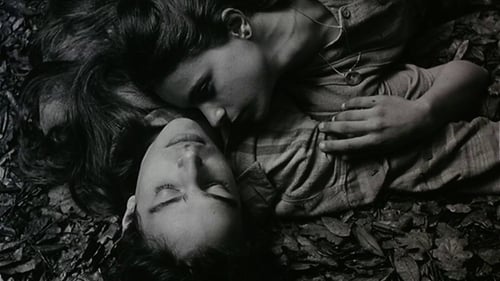
Editor
An impossible love. Two young people who love each other. Vera and João can’t find in this life the space, time, or identity to resolve their love story.

Editor
Six unused scenes from Where Does Your Hidden Smile Lie? One of the more priceless of the “bagatelles” in this collection features a lounging Jean-Marie Straub who gives a non-stop disquisition on liberty and filmmaking while Danièle Huillet busies herself with laundry, and their dog Melchior frisks in and out of frame. —Cinematheque Ontario
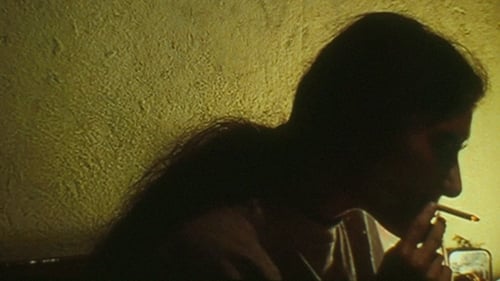
Editor
An unflinching, fragmentary look at a handful of self-destructive, marginalized people, but taking as main focus the heroin-addicted Vanda Duarte.

Editor


























